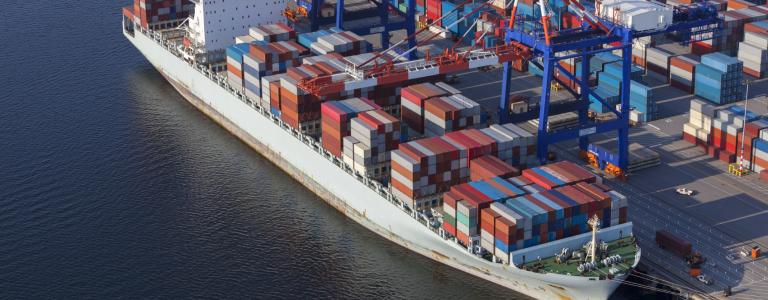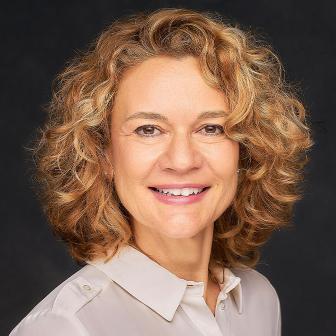UNCITRAL Working Group III and Reform of Investor–State Dispute Settlement
The UN Commission on International Trade Law Working Group III (UNCITRAL WGIII) has pursued reform of the investor–state dispute settlement model since 2017. IISD is an observer member of the Working Group, using our role to promote a fair system to resolve investment disputes that enhances sustainable development.
In 2017, UNCITRAL mandated its Working Group III to identify concerns regarding investor–state dispute settlement (ISDS)—the outdated model for settling disputes between foreign investors and states under investment treaties—and develop reform solutions.
ISDS has repeatedly been used by investors to block climate action—including through the Energy Charter Treaty—hinder environmental protection, and impede on the rights of local communities. Reforming the system is crucial for delivering on the Sustainable Development Goals.
IISD has been an observer member of the Working Group since 2017 and has participated in all of its sessions. Our aim as a member of the Working Group is to turn it into an inclusive process for reforming the ISDS regime—and to support a new approach to investment disputes that enhances, rather than threatens, sustainable development, the energy transition, and a fairer global economy.
The Working Group is crucial for the future of the international investment regime, as the only forum on ISDS reform with a global reach. The sessions are taking place while several countries and regions are developing new approaches to dispute settlement and prevention—as well as negotiating alternative types of treaties and terminating existing outdated ones.
As an observer member, IISD provides technical guidance, tailored briefings, and strategic advice to delegations from a wide range of developing countries.
We also deliver submissions directly to the UNCITRAL Secretariat, organize on-site workshops and side events, and publish analyses of the process. Through our initiatives, we have continuously highlighted agenda issues with a high reform potential, such as the unfair way damages in ISDS disputes are calculated, flagged developments that could threaten sustainable development, and proposed practical solutions.
IISD is having an extensive impact on the reform process. For example, our joint submission with the Columbia Center on Sustainable Investment and the International Institute for Environment and Development on regulating third-party funding of ISDS claims—a practice that has enabled speculative claims that often generate badly inflated costs for developing countries—triggering the Working Group to publish draft regulation reflecting our recommendations.
Submissions to the Working Group
IISD, the Columbia Centre on Sustainable Investment (CCSI), and the International Institute for Environment and Development (IIED) regularly submit joint comments to UNCITRAL Working Group III on proposals for the reform of investor–state dispute settlement.
Prioritization of the Draft Provisions on Procedural and Cross-Cutting Issues
Submission to UNCITRAL Working Group III in May 2023.
Assessment of Damages and Compensation
Submission to UNCITRAL Working Group III in November 2021.
Third-Party Funding
Submission to UNCITRAL Working Group III in September 2021.
Draft Work and Resourcing Plan
Submission to UNCITRAL Working Group III in March 2021.
Publications
IISD publishes regular research, analyses and recommendations to support developing economies to navigate the negotiations at UNCITRAL Working Group III.
UNCITRAL Working Group III and the Assessment of Compensation and Damages: Thinning scope for impactful reform or an opportunity to make a difference?
This paper summarizes the discussions on the assessment of compensation and damages at UNCITRAL Working Group III on Reform of Investor–State Dispute Settlement (ISDS) and proposes an efficient way to reform some of the problematic aspects of ISDS practice. The essay proposes limitations on the use of income-based valuation techniques (discounted cashflow method) in defined circumstances.
The UNCITRAL Code of Conduct: Breakthrough or diversion?
This article provides an overview and analysis of UNCITRAL Working Group III’s third draft Code of Conduct for Investment Adjudicators.
UNCITRAL Working Group III Considers Options to Regulate Third-Party Funding
This article discusses the draft regulatory provisions prepared by the Secretariat of UNCITRAL Working Group III on third–party funding.
Reflecting on a Year Online for International Investment Negotiators
This report examines the opportunities and challenges resulting from investment negotiations—including UNICTRAL Working Group III—moving online due to COVID–19.
Meetings and Events
IISD and partner organizations host webinars, events, and workshops alongside UNCITRAL Working Group III sessions to help developing country delegates prepare for the deliberations. See examples below.
Rethinking Investment Treaties: Lessons for policy-making
In this webinar, panelists discussed key findings of a new report, Rethinking Investment Treaties: A Roadmap.
Introductory Workshop on International Investment Law: Madagascar
An introductory workshop on international investment law for Madagascar government officials.
2023 Investment Policy Forum
The 15th Investment Policy Forum was held in Panama City, Panama, from October 25 to 27, 2023. The event was organized by the International Institute for Sustainable Development (IISD) and hosted by the Government of Panama.
Informal Preparatory Meeting for the 42nd UNCITRAL WGIII Session
This preparatory meeting brought together developing and emerging economies to prepare for the 42nd session of UNCITRAL Working Group III in February, 2022.
Latest
You might also be interested in
Transparency and the UNCITRAL Arbitration Rules
In 2006 the United Nations Commission on International Trade Law (UNCITRAL) began revising its arbitration rules, which are the second-most commonly used in investor–state arbitration. IISD obtained status in 2006 to observe this process, and has actively participated in every session of the Working Group since.
Investment Treaty News
Investment Treaty News is IISD's long-running flagship journal, offering our global readership the latest news, analysis, and ideas on how international investment impacts sustainable development.
Advisory Services, Technical Support, and Workshops
IISD's international lawyers and policy experts provide training courses, workshops, and a range of advisory services for developing economy officials—covering investment treaties, laws and contracts, negotiations, and dispute prevention and management.
Investment Law and Policy Reform: A series of expert meetings
Through a series of interactive expert meetings, IISD has fostered innovative thinking and developed elements of a progressive agenda on investment.





